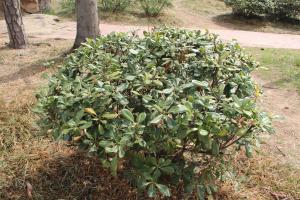Introduction
Planting grass seed is a great way to improve the aesthetic appeal of your lawn. However, planting at the wrong time can lead to poor germination or even crop failure. Therefore, it is important to know when is the right time to plant grass seed. In this article, we will discuss the factors that affect the success of grass seed planting and provide tips on when to plant.
Factors that Affect the Success of Grass Seed Planting
Before we discuss when the best time to plant grass seed is, it is important to understand the factors that affect the success of grass seed planting. The two key factors that contribute to the success of grass seed planting are soil temperature and moisture.
The ideal soil temperature range for grass seed germination is between 59 to 77°F (15 to 25°C) for cool-season grasses and between 65 to 70°F (18 to 21°C) for warm-season grasses. If the soil temperature falls below or surpasses these ranges, the germination process will be slow or may not happen at all.
Additionally, moist soil is crucial for grass seed germination as it helps the seed absorb nutrients and water needed for growth. The soil should be moist but not excessively wet to prevent seed rotting.
Best Time to Plant Grass Seed
Now that we have discussed the factors that affect the success of grass seed planting, let us explore the best time to plant grass seed.
Fall is the best time to plant cool-season grasses such as fescue, bluegrass, and ryegrass. This is because soil temperatures are optimal for seed germination and the cool weather conditions create ideal growing conditions for these grasses. Additionally, autumn rainfall reduces the need for frequent watering, making it easier for the grass to germinate.
In contrast, the best time to plant warm-season grasses such as Bermuda, St. Augustine, and Zoysia is in the late spring or early summer. This is because the soil temperatures have warmed up enough to support seed germination, and the warm summer weather is ideal for the growth of these grasses.
Other Tips for Grass Seed Planting
While plant timing is important, there are other factors to consider for successful grass seed planting. These include:
-Ensure the soil is prepared and healthy before planting.
-Remove weeds before planting to reduce competition for resources.
-Choose the right type of grass seed for your soil and climate.
-Use a seed spreader to distribute the seed evenly.
-Water the lawn regularly after planting to ensure it stays moist.
-Fertilize the grass after it has germinated to promote healthy growth.
Conclusion
In conclusion, the success of grass seed planting heavily relies on soil temperature and moisture. The best time to plant grass seed varies based on the type of grass you intend to plant. For cool-season grasses, fall is the ideal planting time, while warm-season grasses should be planted in late spring or early summer. By considering other factors such as soil preparation and watering after planting, you can ensure successful grass growth and a beautiful lawn.

 how many times do yo...
how many times do yo... how many planted tre...
how many planted tre... how many pine trees ...
how many pine trees ... how many pecan trees...
how many pecan trees... how many plants comp...
how many plants comp... how many plants can ...
how many plants can ... how many plants and ...
how many plants and ... how many pepper plan...
how many pepper plan...































